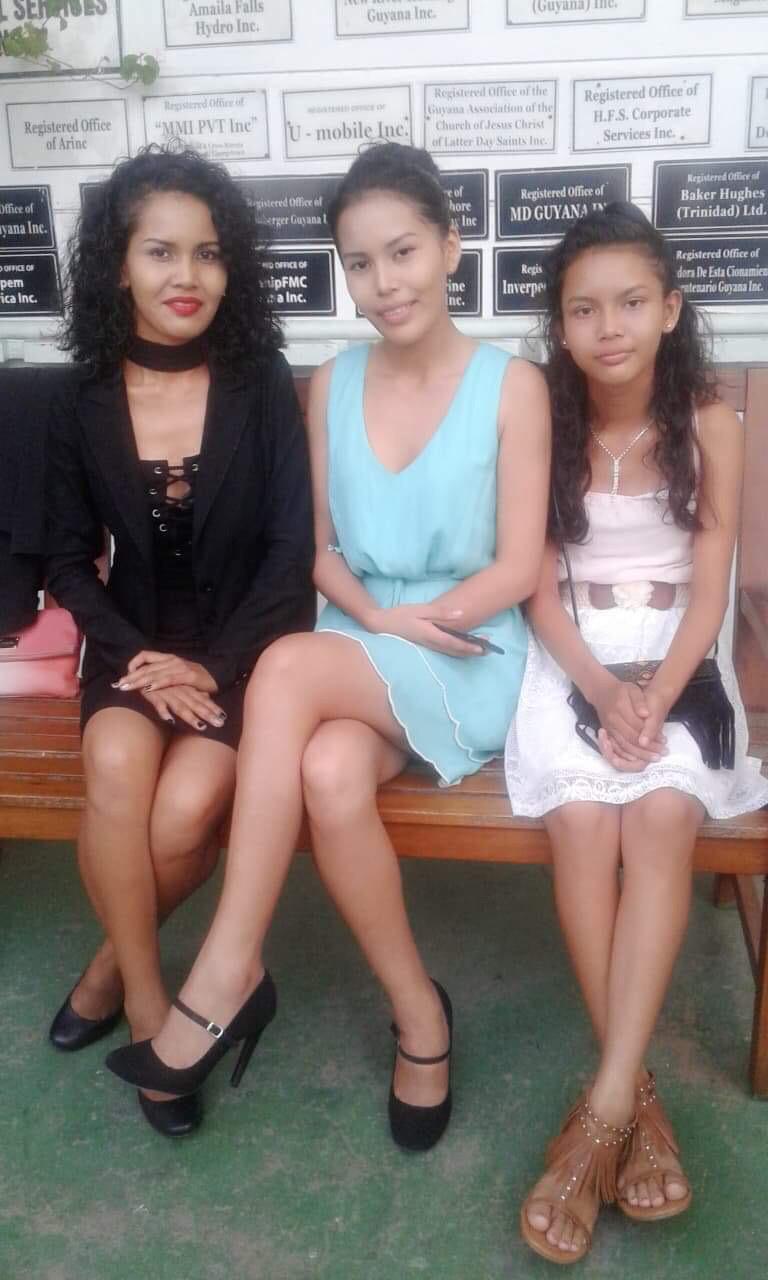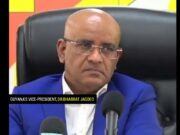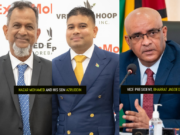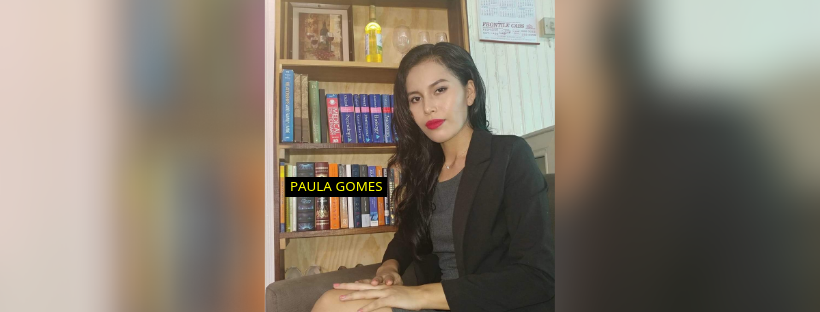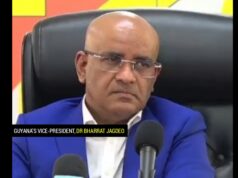The treatment constantly meted out to indigenous people has motivated a young Paramakatoi woman to pursue a career in the legal profession.
Paula Gomes, 21, hails from the largest Amerindian community in the North Pakaraimas in Region 8 – Paramakatoi Village.
The community is home to at least 2000 native Patamona inhabitants who lead a largely insular lifestyle with limited connection to the urban coast.
Gomes did her schooling there, up to the Primary level, and performed well at the National Grade six assessment; topping the Region and securing a full scholarship to President’s College in Golden Grove on the East Coast of Demerara in 2009.
Gomes found leaving home at the tender age of 11quite challenging. But she made the best out of the opportunity that went her way.
Gomes told Guyana Standard, “Adjusting to life in a new environment (at President’s College dormitory) was made easier by the fact that I had a natural knack for adapting quickly.”
However, Gomes said that her life at President’s College was not without the challenges that came with being an indigenous person in the city.
“Unfortunately, partial and less than favourable treatment that indigenous students like myself and a few others at the school were subjected to, was perpetuated openly by students and sometimes even teachers.”
Nevertheless, Gomes sat 11 subjects at the Caribbean Secondary Examinations (CSEC) in 2014; and managed to secure a spot in the top five at Presidents College. She was awarded the eighth place in the region and best graduating hinterland student for that year.
Upon her return home for the holidays, Gomes related to her parents her plans to return to sixth form to commence pursuit of a career in law.
“Given my achievements at that point, I would like to think that they were confident in my potential and this greatly influenced the support they showed me.”
Gomes sat 11 subjects at the CAPE level and graduated in 2016.
She graduated best student in the Humanities faculty and was honored with the Toussaint Boyce Award. She was also given a place in the top five performers for region 4 that year.
Hereafter, the young woman paid an annual visit to her hometown in the Pakaraimas and decided to take a year off before enrolling in the law program at the University of Guyana.
During this time, she acted on her passion for writing and worked as a journalist at the Guyana Times/TV/G. This served mostly as a transition period since she was introduced to new responsibilities that came with working, as well as the added responsibility of taking care of her younger sister who began attending St. Joseph High school at that time.
Gomes said that court reporting gave her insight into how the justice system operates in Guyana.
Gomes told Guyana Standard, “What stuck out to me most and probably because I was able to relate, was the feeling of great sadness at the treatment indigenous people brought before the court were subjected to.”
Most times, she said, they appeared unrepresented, sometimes unable to speak the English language due to the largely insular life of the hinterland communities.
“The injustices suffered by this minority group extends to the justice system and influences the way in which they are treated, whether it be by the police officers or the magistrates, just because they cannot understand or are unable to relate because of the obvious language and cultural barrier. This saddening reality served as an added motivation to pursue a career in the legal profession, to ensure that all people were treated fairly, given due representation and a fair hearing they are constitutionally entitled to.”
In 2017, Gomes applied to the University of Guyana and commenced reading for the Bachelor of Laws. Unfortunately, shortly after she began her studies, her parents informed her that they were unable to finance her pursuit.
“I was thrown into a state of despair but I was determined to make it work by any means necessary.“
Gomes said that she had come to know one, Michael McGarrell, a long standing family friend, and Laura George of the Amerindian People’s Association (APA), who became aware of her situation. They revealed that they may be able to assist in securing a sponsorship from one of the largest firms in the country, which had been representing the interests of the APA for a long time now.
They assisted in securing an interview with Nigel Hughes, Managing Partner of Hughes, Fields and Stoby.
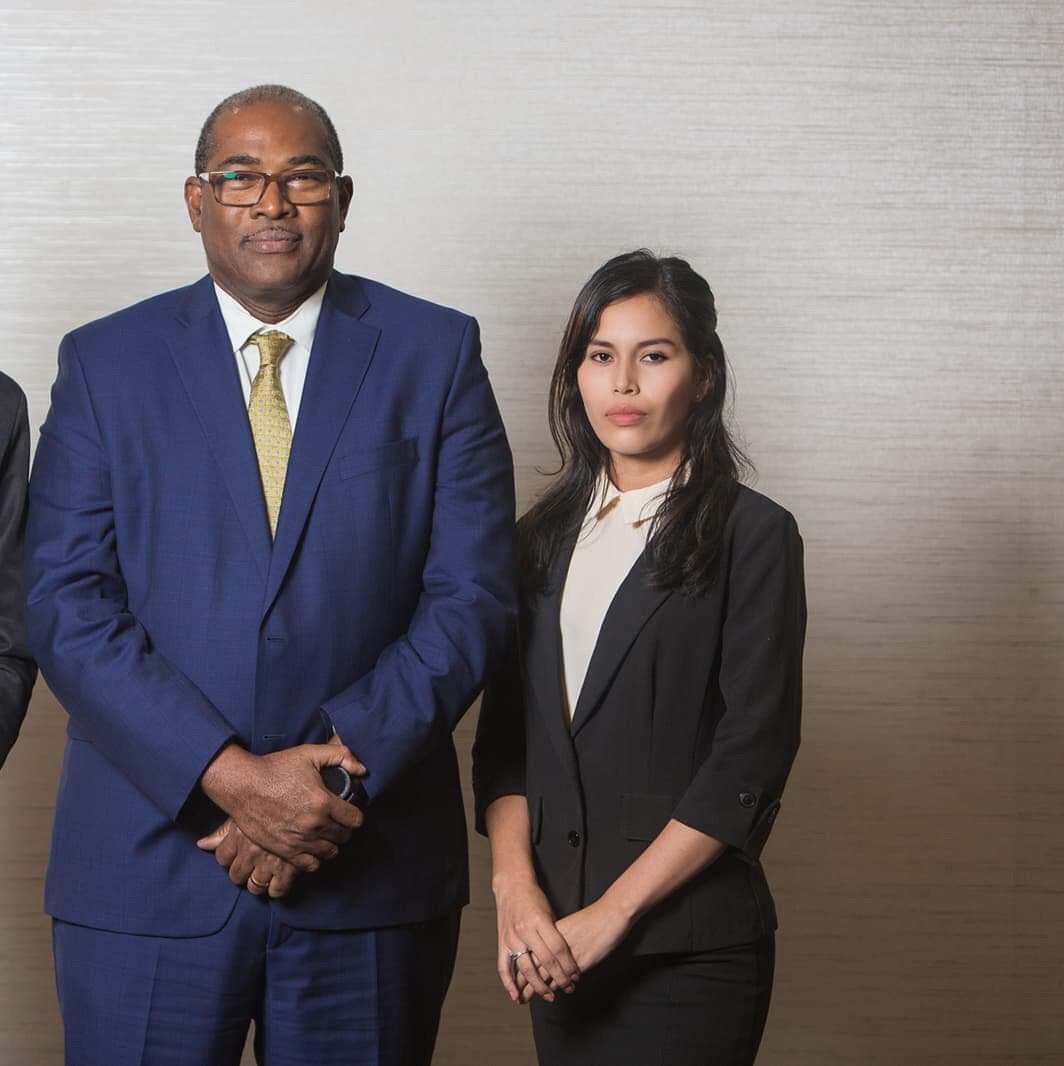
“At first, I was very nervous when I met with Mr Hughes, however, I was quite relieved when he indicated that he was impressed with my academic record,” said Gomes.
Several days later, she was awarded a full scholarship in honour of the late Attorney, Clarence Hughes S.C., (Founder of Hughes, Fields and Stoby and father of Nigel Hughes) to pursue her studies at the University of Guyana.
She started off part time and intended to take a reduced load of the courses offered over a four year period since, at the time, she was still employed with Guyana Times.
However, the demanding nature of journalism caused her to leave her job at the end of the first semester (at the end of 2017) for a more flexible internship at Hughes, Fields and Stoby where she works presently, as a paralegal.
“Thus far, my experience at Hughes, Fields and Stoby has truly been invaluable. Firsthand exposure to broad spectrum legal research and practice equipped me with general knowledge in these areas, ultimately facilitating in-depth understanding and appreciation of the form and function of Guyana’s legal system.”
She said that she likes the environment at the firm which is “good for professional development.”
Presently, Gomes is in the second year of her studies and hopes to attend the Hugh Wooding Law School after she graduates in 2021.
“I chose to pursue a career in law for the reason that I am a firm believer in justice. Additionally, it offers me the opportunity to represent individuals who are often times the minority and the voiceless in society; indigenous people falling into this category. As an Indigenous person myself, I wish to be able to defend the rights of my people.”
